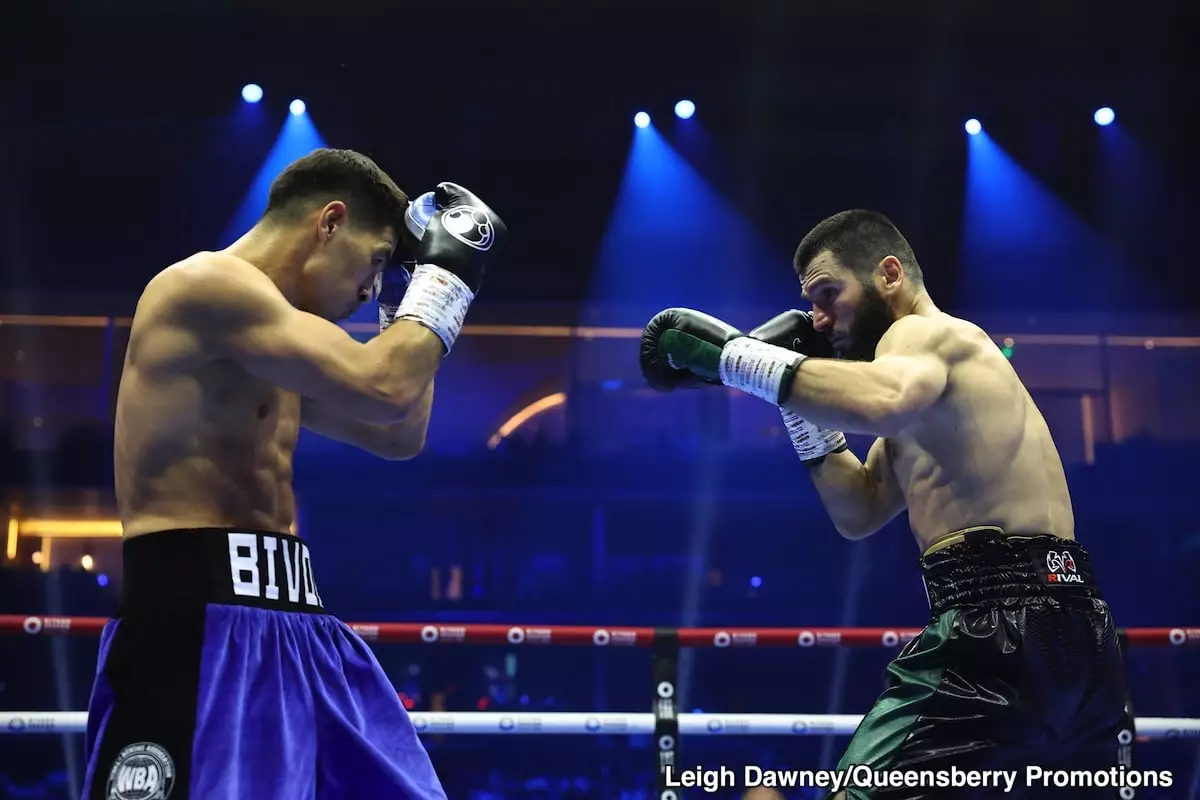The recent boxing match between Dmitry Bivol and Artur Beterbiev has sparked significant debate among boxing enthusiasts, particularly following Bivol’s protest to the sport’s governing bodies for a rematch. On October 12th at the Kingdom Arena in Riyadh, Saudi Arabia, Bivol faced Beterbiev for the second time, ultimately suffering a disappointing majority decision defeat that has left him seeking another chance to prove himself. This article dives deep into the complexity of this situation, examining the arguments made by Bivol’s camp, the evidence (or lack thereof) behind them, and the potential ramifications of their appeal.
Bivol’s team claims that the “majority of viewers” believed he won the fight, which has triggered a wave of skepticism. While they may wish to bolster Bivol’s standing within the boxing community and among die-hard fans, this argument is inherently flawed as it’s impossible to accurately gauge audience opinions en masse. This invokes a broader critique of the boxing culture; boxing fans primarily rely on their own subjective assessments, and interpretations of a fight can vary widely based on individual biases and preferences.
While the desire for a rematch is understandable, especially given the competitive nature of professional boxing, promoting the idea of a “viewer consensus” jeopardizes Bivol’s credibility. Moreover, such tactics could backfire, painting him and his team as sore losers in the eyes of the broader sports community. Instead of enhancing his status, it risks drawing parallels to fighters who have struggled to accept defeats gracefully.
The fight itself was not an engaging spectacle. Bivol largely employed a defensive strategy, focusing on movement to avoid Beterbiev’s formidable power, but ultimately he seemed to abandon the fight after the seventh round. While some may argue that this was a shrewd tactical maneuver, the reality is that it deprived fans of a genuine bout and led to an unflattering assessment of his performance.
Beterbiev dominated the latter stages of the match, and Bivol’s reluctance to engage more actively, especially in the championship rounds, manifested in a lackluster final performance — characterized by holding and minimal offense. Observers, including renowned boxing analysts, noted this shift dramatically altered the fight’s trajectory, painting the champ as a pursuer and Bivol as a fleeing contender.
Gareth A. Davies put it bluntly, emphasizing that Bivol appeared “bullied” in the final rounds, and whether the fight could have continued for 20 rounds, he would still be evading punches. Analysts scrutinized Bivol’s athleticism, questioning why he failed to capitalize on earlier momentum and resorted to a defensive shell instead.
The question remains: Is a rematch with Beterbiev the best course of action for Bivol? If the appeal is successful and a second bout is organized, many factors must be taken into consideration. One notable suggestion has been the need for a smaller ring, which could potentially limit Bivol’s ability to use his footwork as effectively as before. This tactical shift could allow Beterbiev to corner him more easily and deliver punishing blows.
However, opportunities to fight more popular opponents like Canelo Alvarez or David Benavidez exist, which might offer Beterbiev greater prestige and fan engagement. If Beterbiev has any inclination towards unifying titles or pursuing these high-visibility bouts, then Bivol’s chances of stepping back into the ring with him could diminish rapidly. Being sidelined for an extended period could erode Bivol’s public popularity and marketability in the sport.
Ultimately, this situation serves as a crucial reminder for fighters: understanding when to pivot strategies, accept outcomes, and learn from losses can often be more valuable than simply seeking an immediate path for retribution. Bivol’s latest move could be perceived as desperate or out of touch, igniting greater scrutiny over his reputation among fans and analysts alike.
In a sport deeply rooted in tradition and respect, knowing how to navigate loss is essential for long-term success. Whether Bivol can recover from this defeat, both in terms of performance and public perception, remains to be seen. The boxing world will be watching closely as this narrative unfolds, evaluating not just the tactical decisions, but also the manner in which Bivol chooses to respond to adversity.

